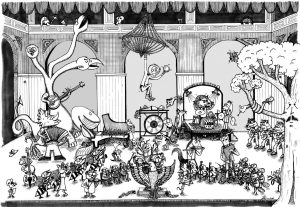The Coronavirus pandemic has highlighted just how resistant people are to changing behaviour. Almost everyone is asking when we can “return to normal” and becoming stressed that leaders and officials are unable to provide a clear answer. The truth is after such a crisis the NEW normal is not a return to the “old ways of doing things” and this will force people out of their comfort zones. We will inevitably need to do some things differently and there will be a HUGE financial deficit and instability in most countries. Coronavirus pandemic MAY be over in a few months for most countries, but the “New Normal” (when we return to relative stability) will be very different to what we have experienced before. This may take years to settle out, as we deal with the aftermath of the crisis. In the short term, it has been impressive to see how behavioural change can happen, when it is a life and death situation. This shows we can decide to change when forced to. Imagine if we could be agile and consciously change our behaviour when not forced to – powerful! This crisis has shown that when we stop arguing about differences and start leveraging these diverse perspectives, we can cocreate many more options.
Many people become more patterned as they continue to experience prolonged periods of stability – and this builds up a resistance to change. Our “normality” becomes more entrenched as we get embedded into a comfort zones of repeating routine cycles of the same predictable behaviour and actions. This is great for living on cruise control to make life efficient, but it does not work if the world suddenly and unpredictably changes. The consequences of this is we live very close to our means as we want to get everything we can as soon as possible, and sometimes sooner. The proof of this low average savings and high debt in most industrialised cultures. So, with the mass expectation of getting everything sooner, comes the impacts of low resilience and social stress when unpredictable changes happen.
We have now entered an unexpected VUCA (Volatile, Uncertain, Complex and Ambiguous) situation. This requires us to be much more adaptable and aware of what is happening, because it is constantly changing. Predictions about what might happen next are unreliable, making longer term decisions and actions difficult to “get right”. To perform best in this situation, we benefit from becoming comfortable making decisions and taking actions with an open mindset and knowing this may or may not work. Taking NO action can be worse that taking an action that later turns out to be suboptimal. What we KNOW from the past may hinder us more than it helps, because past knowledge is quite often not applicable to the new context. There is a whole of body of literature on Complexity Science, that most people did not expose themselves to because they were too busy optimising their lives assuming the “good times” will never end. All ecosystems go through cycles and become disrupted at some stage.
“It is not the strongest of the species that survives, nor the most intelligent that survives. It is the one most adaptable to change.” is brilliant quote (incorrectly) attributed to Charles Darwin (“facts” are not always correct, even if everyone believes them to be so). Despite its incorrect attribution, this message embodies a critical insight for humanity at this time. We simply can’t go back to what we knew before – individually or collectively.
 The Org Zoo Orchestra image highlights that understanding how to choose your behaviour to cocreate harmony together generates value, rather than reacting against each other to create distracting noise and conflict.
The Org Zoo Orchestra image highlights that understanding how to choose your behaviour to cocreate harmony together generates value, rather than reacting against each other to create distracting noise and conflict.
It is almost a century since humankind suffered it last truly global VUCA situations. The Influenza pandemic of 1918-9, the first and second world wars (largely self-inflicted) and the depression all demonstrated examples of poor behaviour among those in power, which impacted humanity as a whole. There have been some more localised challenges since then, such as natural disasters taking many human lives, but not on a truly global scale. Other than Climate Change, of which we have not yet seen the full impact. It is time for a deep reflection on how we behave and interact if we are to regain sustainability of our global home. Coronavirus has proven just how vulnerable our global ecosystem is and its not just the “biological” environment. Our global economy is a fallacy in its current state. Those that control the economy are the biggest players and most of these have an “extraction” mentality. “Maximise stakeholder value” is really saying exploit the planet as quickly as possible and pocket the profits before someone else does. First to market wins the spoils and it is clever to damage the competitors along the way to ensure they can’t be competitive. Competition can improve efficiencies and collaborative international trade is critical. However, within this apparent oxymoron, the current global marketplace in inherently unfair, unethical and unsustainable. As Ricardo Semler stated, “If you are giving back, you took too much.”
The ways forward for a sustainable humanity is to understand behavioural adaptability and deeply understand when to collaborate for the planet and when to compete to make sustainable practices “for the greater good” more efficient. This requires the ability to make conscious choices about your behaviour in the various contexts we face across the full range from “predictable within our comfort zone” through to VUCA. When we understand how to proactively make choices about behaviour, we start to lead the ecosystem interactions into an evolving normality that incorporates changes in a manageable way. Instead of reacting to unpredictability with panic, we can enter it to take appropriate actions to regain a sense of control by managing what can be managed and closely monitoring the things out of our control. The Organizational Zoo creative metaphor provides ways to learn how to achieve this growing level of comfort across the spectrum of behavioural options and contexts. It helps us to consciously choose our behaviours and align them to present and future contexts. This enables us to lead people to better decisions and create more sustainable Applied Social Learning Ecosystems.
A shift in mindset from “extraction” to “how do I contribute to society and share value in a fair way?”, will enable human societies to create a more sustainable ecosystem and a resilient economy that supports everyone. These “Conversations That Matter” will benefit from some Creative Friction and the learning mindset embedded into KNOWledge SUCCESSion. The positive side of the COVID pandemic is we have seen the worlds cultures (forced into) collaborating against a common enemy. Imagine what we could achieve together, if we did this all the time for mutual (fairly distributed) benefit. This can happen if we respect differences, align behaviours and build trusted relationships around common concerns and leverage differences to fuel creativity and drive innovation.
Behavioural adaptability won’t prevent pandemics and other global challenges, but it will provide greater resilience and speedier recoveries and mitigate the impacts – IF we shift our mindsets.


 Creative Commons License
© Arthur Shelley 2013 - 2024
Creative Commons License
© Arthur Shelley 2013 - 2024
Aspirational, Arthur!! Beautiful concept if everyone would and COULD get on board, consciously working collaboratively toward the greater good. Sadly, I have little faith in the current administrations leading the “free world”. If only they would all listen to and learn from you, the world would be a much nicer and kinder place!
I appreciate your thoughts and sentiments Michelle.
The good thing about COVID is it ahs exposed the problems. The challenging aspect is many current leaders are vested in the current hierarchies and will resist positive changes.
Thanks, Arthur. I agree, the will be a new normal and it will be interesting to see what that is.
Thanks David,
The new normal can be anything we choose – if we have the commitment to enable better ways. If we seek to return to the unsustainable ways, we go backward, rather than forward.
‘This crisis has shown that when we stop arguing about differences and start leveraging these diverse perspectives, we can cocreate many more options.’ I could not agree more, dear Arthur! Wonderfully said!
Thank you Margarita,
Yes when we approach differences with an open and curious mind (and heart), we all learn something about others and about ourselves too.
”The positive side of the COVID pandemic is we have seen the worlds cultures (forced into) collaborating against a common enemy. Imagine what we could achieve together, if we did this all the time for mutual (fairly distributed) benefit. This can happen if we respect differences, align behaviours and build trusted relationships around common concerns and leverage differences to fuel creativity and drive innovation.” Loved the way you finish this article as well, stay positive, see the positive and try to make the best of every ‘bad’ situation! In Greece we say ‘whatever does not kill you makes you stronger’ Let’s hope that this time of madness we are going through we will not only make us stronger and more adaptable, but also kinder, more loving and expressing our love to the people who understand its importance!
Thank you Margarita.
I am sure that many of us will emerge stronger, and hopefully more adaptable. Actually, Adaptability is what will make us stronger… AND, hopefully we have learnt that we are stronger together through collaboration rather than competing.